
Alfred Damon Runyon was an American journalist and short-story writer.
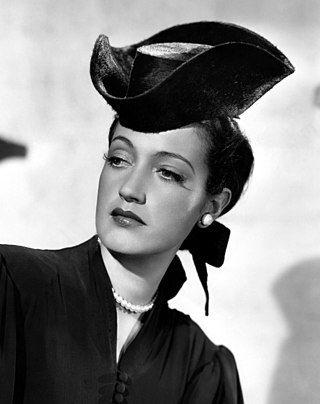
Dorothy Lamour was an American actress and singer. She is best remembered for having appeared in the Road to... movies, a series of successful comedies starring Bing Crosby and Bob Hope.
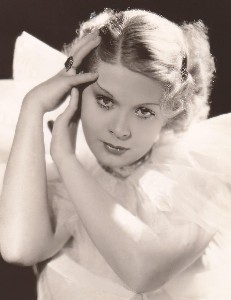
Dorothy Dell was an American film actress. She died in an auto accident at the age of 19.
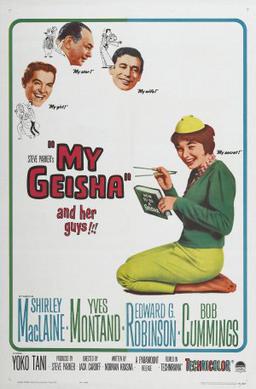
My Geisha is a 1962 American comedy film directed by Jack Cardiff, starring Shirley MacLaine, Yves Montand, Edward G. Robinson, and Bob Cummings and released by Paramount Pictures. Written by Norman Krasna, based on Krasna's story of the same name, the film was produced and copyrighted in 1961 by MacLaine's then-husband Steve Parker. The world premiere was at the Plaza Theatre in London's West End on January 18, 1962.

Sorrowful Jones, also known as Damon Runyon's Sorrowful Jones, is a 1949 American comedy-drama film directed by Sidney Lanfield. The film stars Lucille Ball and Bob Hope.
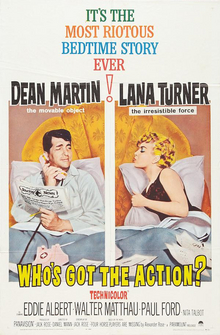
Who's Got the Action? is a 1962 American comedy film directed by Daniel Mann from a screenplay by Jack Rose, based on the novel Four Horse Players Are Missing by Alexander Rose. It stars Dean Martin and Lana Turner, with Eddie Albert, Walter Matthau, Paul Ford, and Nita Talbot. The film concerns a man suffering from an addiction to gambling.

Golden Boy is a 1939 American drama romance sports film directed by Rouben Mamoulian and starring Barbara Stanwyck, Adolphe Menjou and William Holden. It is based on the 1937 play of the same title by Clifford Odets.

Dance, Girl, Dance is a 1940 American comedy-drama film directed by Dorothy Arzner and starring Maureen O'Hara, Louis Hayward, Lucille Ball, and Ralph Bellamy. The film follows two dancers who strive to preserve their own integrity while fighting for their place in the spotlight and for the affections of a wealthy young suitor.

This is a selection of films and television appearances by British-American comedian and actor Bob Hope (1903-2003). Hope, a former boxer, began his acting career in 1925 in various vaudeville acts and stage performances
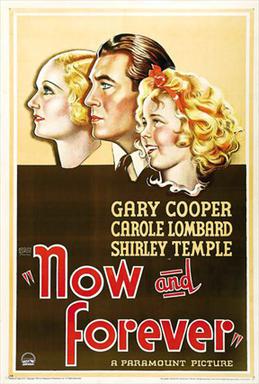
Now and Forever is a 1934 American drama film directed by Henry Hathaway. The screenplay by Vincent Lawrence and Sylvia Thalberg was based on the story "Honor Bright" by Jack Kirkland and Melville Baker. The film stars Gary Cooper, Carole Lombard, and Shirley Temple in a story about a small-time swindler going straight for his child's sake. Temple sang "The World Owes Me a Living". The film was critically well received. Temple adored Cooper, who nicknamed her 'Wigglebritches'. This is the only film in which Lombard and Temple appeared together.

Little Miss Marker is a 1980 American comedy-drama film written and directed by Walter Bernstein and based on a short story by Damon Runyon. It stars Walter Matthau, Tony Curtis, Julie Andrews, Bob Newhart and new arrival Sara Stimson. The film is a remake of the 1934 film of the same name starring Shirley Temple and Adolphe Menjou.

Little Big Shot is a 1935 American film directed by Michael Curtiz, and starring Sybil Jason and Glenda Farrell. The film was released by Warner Bros. on September 7, 1935. The plot concerns a young girl who endears herself to her caretakers after her father is murdered by mobsters.

Clarence is a 1922 American silent comedy drama, based on the 1919 play by Booth Tarkington, produced by Famous Players–Lasky and distributed through Paramount Pictures. It was directed by William C. deMille and starred Wallace Reid in his penultimate screen appearance.
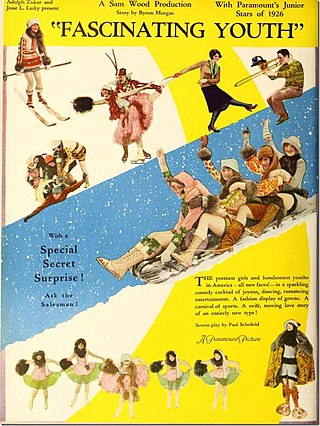
Fascinating Youth is a 1926 American silent romantic comedy film directed by Sam Wood. It starred Charles "Buddy" Rogers, along with Thelma Todd and Josephine Dunn in supporting roles. Many well-known personalities made guest appearances in the film, judging a beauty contest in one scene, and Clara Bow makes a cameo appearance in her second film for Paramount Pictures.
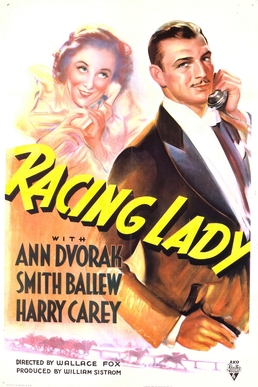
Racing Lady is a 1937 American drama film produced by RKO Radio Pictures, which premiered in New York City on January 12, 1937, and was released nationally on January 29. Directed by Wallace Fox, the screenplay was written by Dorothy Yost, Thomas Lennon, and Cortland Fitzsimmons, based on a story by Damon Runyon, which had been further expanded by J. Robert Bren and Norman Houston.

The Fast Set is a 1924 American silent comedy-drama film directed by William C. deMille and starring Betty Compson. The film is based on the 1923 Broadway play, Spring Cleaning, by Frederick Lonsdale.
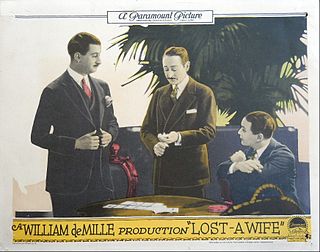
Lost: A Wife is a 1925 American silent comedy film directed by William C. deMille and written by Clara Beranger based upon a play by Clare Kummer and Alfred Savoir. The film stars Adolphe Menjou, Greta Nissen, Robert Agnew, Edgar Norton, Mario Carillo, and Genaro Spagnoli. The film was released on July 13, 1925, by Paramount Pictures.
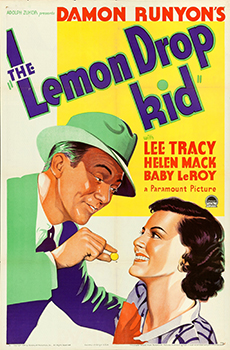
The Lemon Drop Kid is a 1934 American comedy drama film directed by Marshall Neilan and written by Howard J. Green, J.P. McEvoy and Damon Runyon. The film stars Lee Tracy, Helen Mack, William Frawley, Minna Gombell, Baby LeRoy, Kitty Kelly and Henry B. Walthall. The film was released on September 28, 1934, by Paramount Pictures.

The Circus Queen Murder is a 1933 American pre-Code mystery film directed by Roy William Neill and starring Adolphe Menjou, Donald Cook and Greta Nissen. It is the sequel to the 1932 film The Night Club Lady in which Menjou had also starred as Thatcher Colt. The film is based on a story by "Anthony Abbott", a pseudonym used by Fulton Oursler.

John Sheehan was an American actor and vaudeville performer. After acting onstage and in vaudeville for several years, Sheehan began making films in 1914, starring in a number of short films. From 1914 to 1916, he appeared in over 60 films, the vast majority of them film shorts.



















